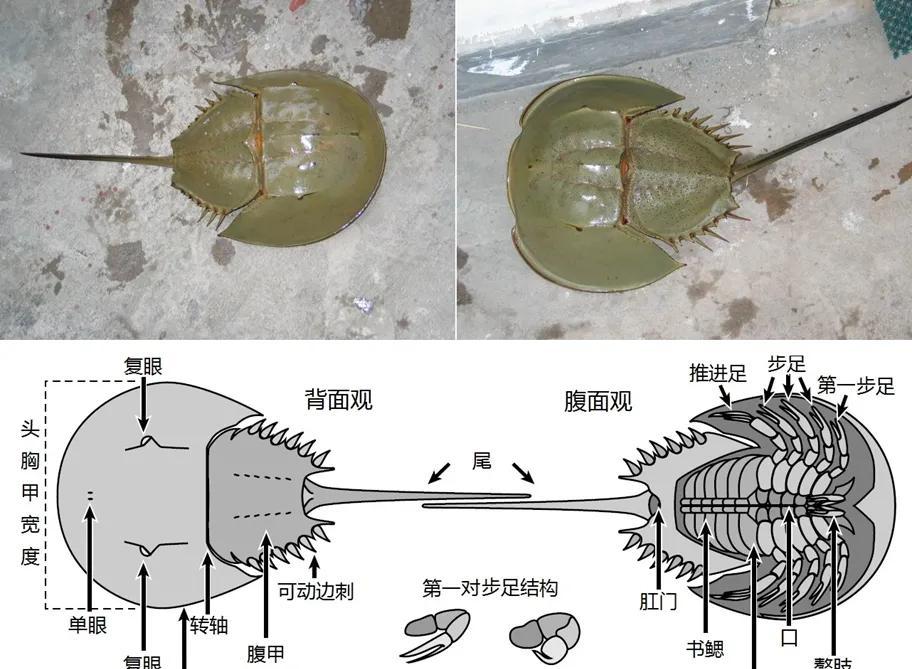The extant horseshoe crab has gone through a long process of about 450 million years and has not changed much in morphological structure. Horseshoe crabs appeared on Earth much earlier than dinosaurs, so they are called living fossils and are important materials for the study of biological evolution, animal physiology and biomimicry.

Dinosaurs first appeared in the Triassic Period 230 million years ago, and perished during the late Cretaceous extinction event that occurred about 65 million years ago in the late Cretaceous Period.
Horseshoe crab blood is blue
Adult horseshoe crabs generally live in deeper seas at depths of 20-60 meters. Horseshoe crabs must go to the beach to lay their eggs and hatch with the right moisture and the temperature provided by the moderate sunlight. Because the swimming ability of the horseshoe crab is not strong, it must use the southeast wind in spring and summer, wait for the wind to move, and in the first or fifteenth tide period of the first or fifteenth day of the lunar calendar, from the deeper sea to the beach to lay eggs, also known as "horseshoe sail". Hence the name "hou", pronounced as "hou". Because the ancients believed that it was a kind of fish, it was the word "learning" on the top, and a "fish" was added below, which was the word "horseshoe".
male
female
The shape of the horseshoe looks like a huge horseshoe, covered with crab-like carapace, so it is called horseshoe crab . In some places, the horseshoe crab is called a horseshoe crab. Horseshoe crabs, said to be fish, not like fish, said to be crabs, not like crabs, and are not similar to other animals, so the name is sea monster. In fact, the horseshoe crab is a limb-ororal animal (the main appendages are arranged around the mouth); the closest relative to the horseshoe is the trilobite; but the trilobite became extinct in the late Paleozoic 250 million years ago.
Now the creatures on Earth, the closest relative to the horseshoe crab is the spider.